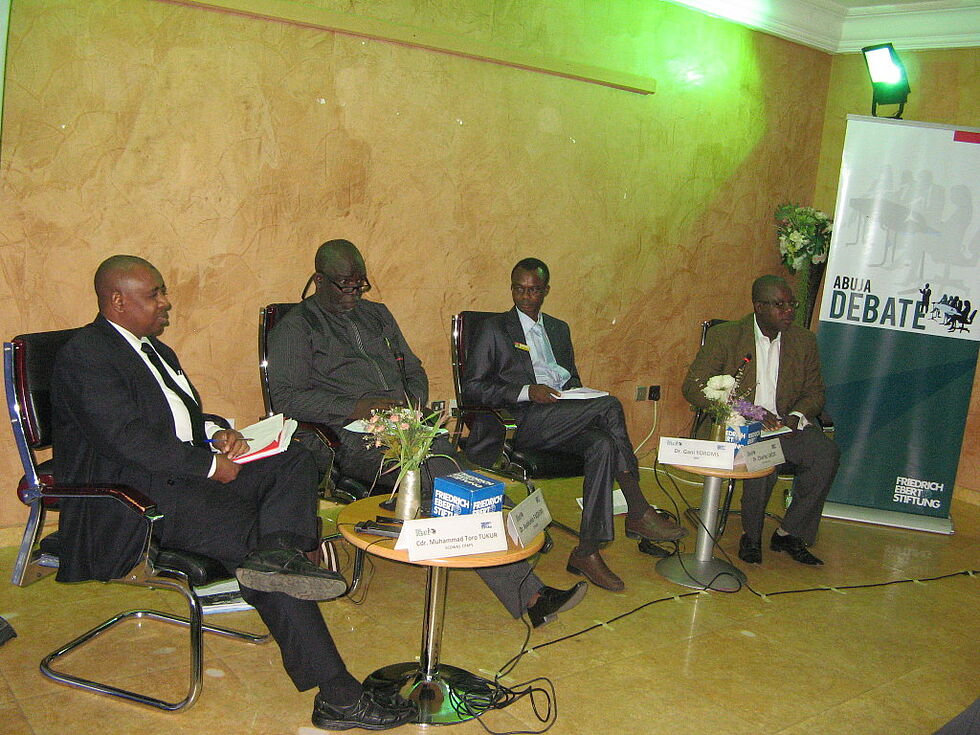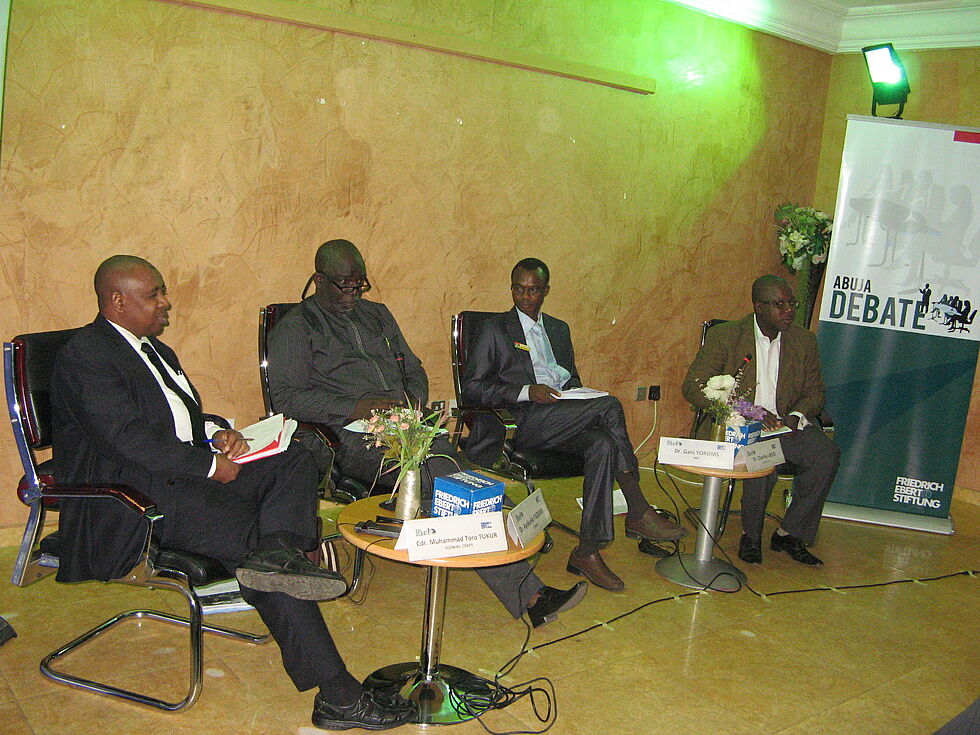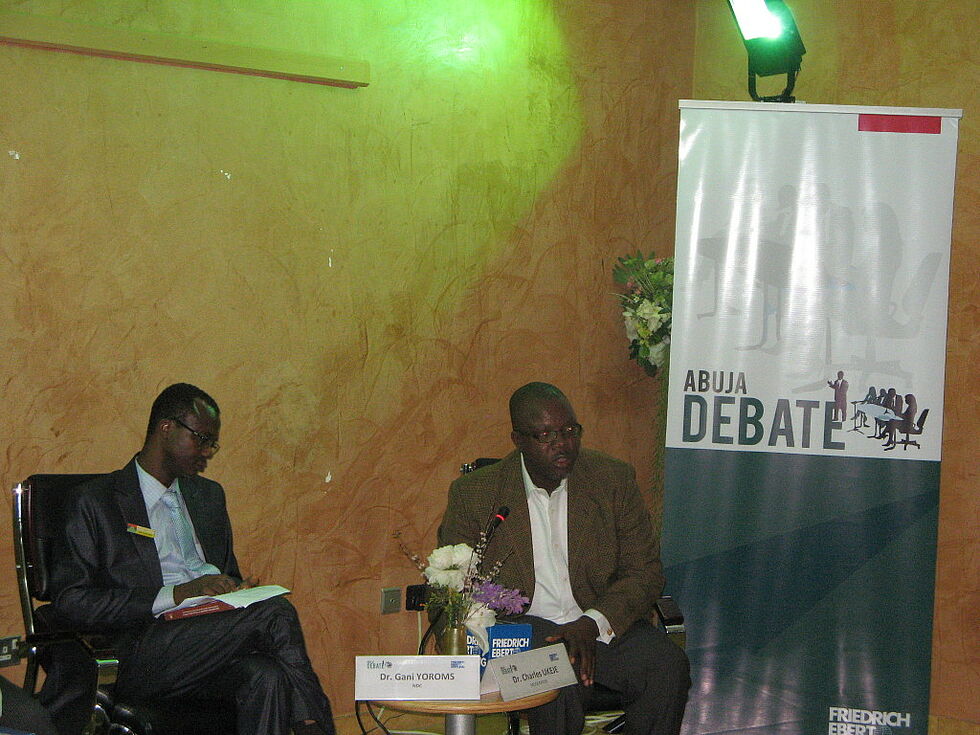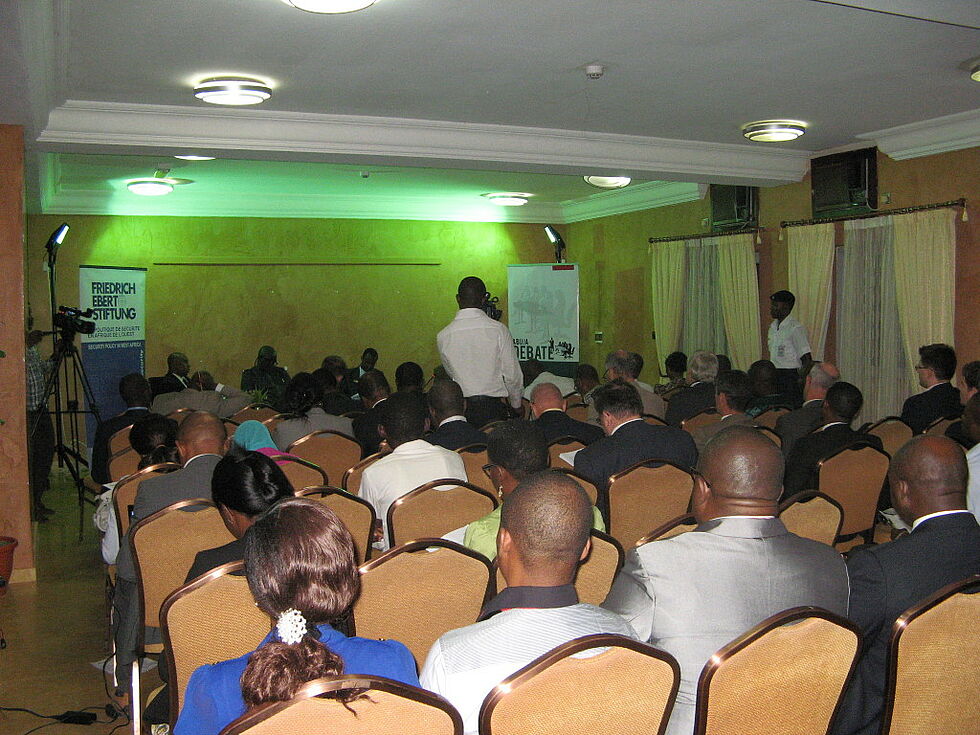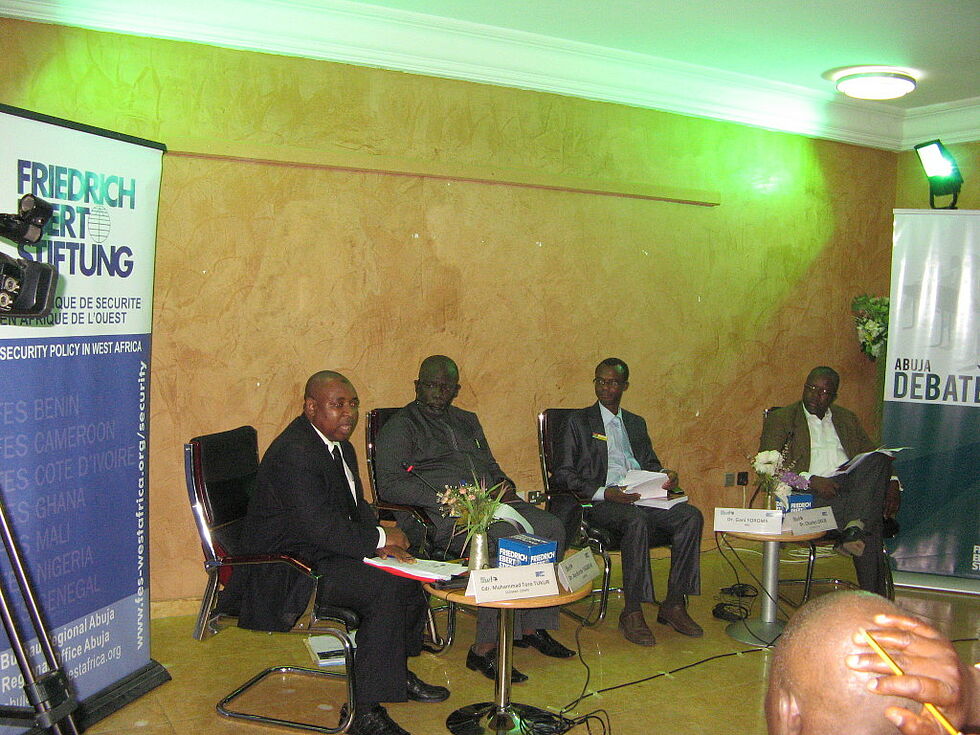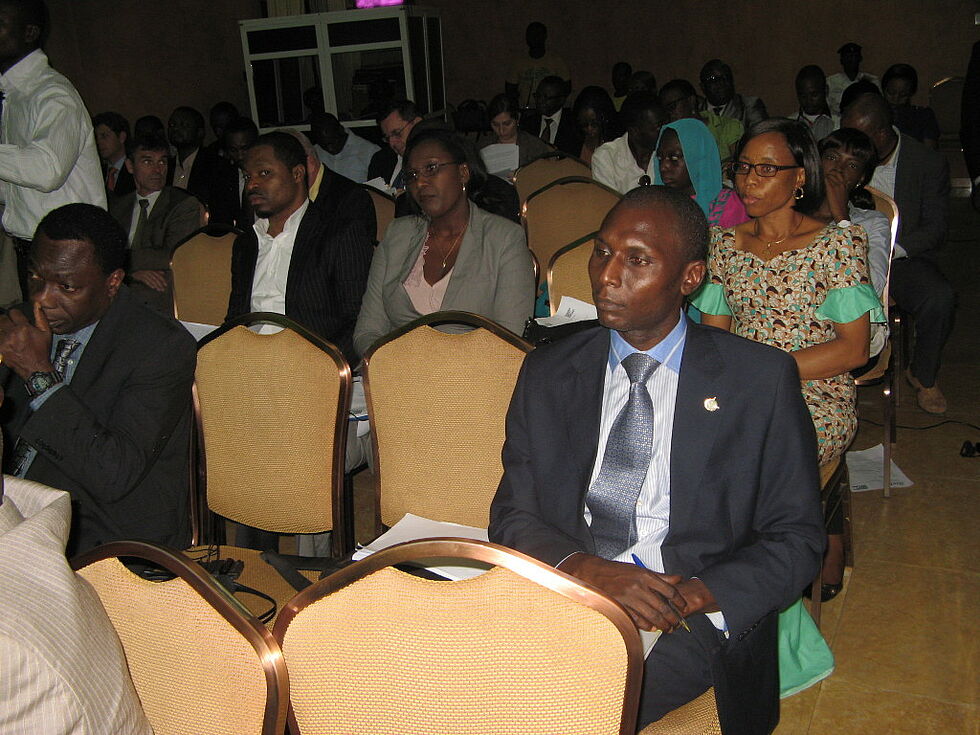West African Approaches to Maritime Security
The discussion addressed growing security challenges facing maritime activities in the Gulf of Guinea. The event was one in a series of FES meetings in Central and West Africa in the run-up to a May 2013 joint ECOWAS / ECCAS (Economic Community of Central African States) summit in Yaoundé, where issues of Maritime Security in the Gulf of Guinea were addressed by the Heads of State of both regions.
The moderator, Dr. Charles Ukeje of the Department of International Relations of Obafemi Awolowo University of Ife pointed out that, for centuries, the sea had been the major route for transport, fostering economic growth in many parts of the world. In recent times, energy security and trade were largely dependent on sea-based transport. Commander Tukur Mohammed Toro of the ECOWAS Commission seconded that the Gulf of Guinea region was “currently the source of around 5.4m barrels of oil per day (bbl/d), equivalent to more than the total amount imported by EU27 countries in 2008 (4.9mbbl/d) and over half of US crude oil imports in 2008 (9.8mbbl/d).” Oil supply from the Gulf of Guinea region in 2011 was “equivalent to 40% of total EU27 and 29% of total US petroleum consumption in the same year. Angola and Nigeria account for 34% and 47% of total Gulf of Guinea oil supply respectively.” Consequently, Maritime security was mainly concerned with preventing damage to these trade routes through criminal activities or terrorism.
Maritime Security is known to be an emerging issue in the Gulf of Guinea. As stipulated by most discussants, tensions had been worst in the region from the late 1990s up until now as a result of piracy, which, according to findings of the United Nations Organisation on Drug Control (UNODC) accounted for nearly 30% of attacks (427 of 1,434) in African waters between 2003 and 2011, the proportion increasing. West African pirates may not yet be able to secure multi-million dollar ransoms, but they had “begun to emulate many of the successful strategies of their Somali counterparts”. An analysis of recent trends demonstrated that the region’s highly organised pirate gangs had “altered their strategies, targets and hunting grounds in order to counteract efforts against them.” In 2010, piracy cost the international economy as much as $12 billion. The drug trade, which flourishes within the Gulf of Guinea region, is estimated to run within the range of about $200 billion (UNODC).
Rear Admiral AA Osinowo of the Nigerian Defence Headquarters maintained that there were a number of stakeholders including regional organisations sharing an interest in maritime security in the Gulf of Guinea. As of now, maritime operations there were not yet equipped to respond duly to all new threats, however. In light of this, the Admiral stressed the need for further integrative policies.
From the perspective of Civil Society, Dr. Fagbemi stated that the Gulf of Guinea stood out as a strategic trading route for Europe, North America and the United States, and China noting also that the engagement by these countries were at a steady increase. “Maritime insecurity is a major regional problem compromising economic development and threatening maritime trade in the short term and the stability of coastal areas in the long term.”
The ensuing discussion allowed for a frank exchange among European Union ambassadors and representatives of the Nigerian government and Armed Forces on the challenges deriving from both bad governance in West Africa and harmful policies in the EU (illustrated by the example of illegal fishing). The interdependence of Europe and West Africa was duly recognised in this regard. Further, there was general acceptance of the fact that piracy, terrorism and other crimes needed certain socio-economic conditions to evolve. Eventually, discussants agreed that a holistic approach was needed, recognising human security as the principal goal of any policy devised to counter maritime insecurity.
Friedrich-Ebert-Stiftung
Peace and Security Centre of Competence Sub-Saharan Africa
Point E, Rue de Fatick x Boulevard de l'Est,
Residence Bity Lokho, 6th floor
B.P. 15 416
Dakar - Fann


